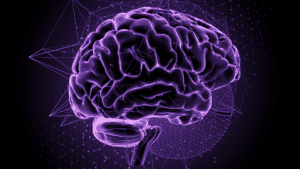Neuroplasticity and mental wellness are intricately intertwined, forming the cornerstone of our brain’s remarkable ability to adapt and evolve. From a neuroscientific perspective, neuroplasticity refers to the brain’s innate capacity to reorganize and form new neural connections throughout life. This dynamic process, central to neuroplasticity and mental wellness, is influenced by our experiences, behaviors, and environment. Mental wellness and emotional intelligence, on the other hand, represent the state of well-being where one recognizes their abilities, copes with the normal stresses of life, and contributes productively to their community.
Harnessing the power of neuroplasticity and mental wellness can lead to significant enhancements in our well-being. By rewiring neural pathways, we can achieve improved cognitive function and emotional health. As we delve deeper into the realm of neuroscience, we uncover the profound impact of neuroplasticity on our mental state. In the context of neuroplasticity and mental wellness, it’s fascinating to realize that our daily habits, thoughts, and actions play a pivotal role in shaping the neural landscape of our brains.
In this article, we will delve into the seven transformative insights that highlight the profound connection between neuroplasticity and mental wellness, aiming to unlock the potential of your brain. By understanding and applying these principles, one can pave the way for a healthier, more resilient, and adaptive mind.
1. Understanding the Foundations of Neuroplasticity

Neuroplasticity, often referred to as the brain’s potential for healing and adaptation, is a groundbreaking concept in the realm of neuroscience. At its core, neuroplasticity is the brain’s ability to reorganize itself by forming new neural connections throughout life. This adaptability is not just limited to our early years but continues well into adulthood.
Historically, when discussing neuroplasticity and mental wellness, scientists believed that once the brain reached maturity, its structure was largely fixed. However, recent discoveries have shattered this notion, revealing that our brains are far more malleable than previously thought. This adaptability is what allows us to learn new skills, recover from injuries, and adapt to various life experiences.
Key Points:
- Neuroplasticity underscores the brain’s potential for healing and growth.
- It is the mechanism behind our ability to learn, adapt, and overcome challenges.
- Contrary to previous beliefs, the brain’s adaptability is not limited to childhood but continues throughout life.
2. The Symbiotic Relationship Between Neuroplasticity and Mental Health
The marvel of neuroplasticity and mental wellness extends beyond mere adaptability; together, they offer a gateway to enhancing overall well-being. For instance, when faced with traumatic experiences, the brain has the capacity to “rewire” itself through neurogenesis, helping individuals cope and recover. This intrinsic ability, combined with neuroplasticity, plays a pivotal role in resilience and overall mental well-being.
Furthermore, the concept of neuroplasticity offers hope. Understanding that the brain can change means that individuals are not necessarily bound by their past experiences or current challenges. With the right interventions and practices, one can harness the power of neuroplasticity for improved mental health.
Key Takeaways:
- Neuroplasticity plays a crucial role in mental resilience and recovery.
- The brain’s potential for healing through neuroplasticity offers hope for those facing mental health challenges.
- Harnessing the mechanisms of neural plasticity can lead to improved mental well-being.
3. Enhancing Well-being Through Neuroplasticity
The marvel of neuroplasticity extends beyond mere adaptability; it’s a gateway to enhancing overall well-being. From a neuroscientific viewpoint, the brain’s potential for healing through neuroplasticity is a testament to its incredible capacity to evolve and improve. This means that with the right practices and interventions, individuals can actively influence their brain’s structure and function to foster better mental wellness.
For instance, learning a new skill or language, engaging in physical activity, or even immersing oneself in novel experiences can stimulate the brain in unique ways. These activities promote the formation of new neural pathways, strengthening the connections between neurons. Over time, these reinforced connections can lead to improved cognitive abilities, sharper memory, and a more resilient mindset.
Key Insights:
- Activities that challenge the brain can activate its neuroplastic capabilities, leading to cognitive enhancements.
- The brain’s adaptability is a tool that, when harnessed correctly, can lead to a more enriched and fulfilling life.
- Regularly engaging in brain-stimulating activities can pave the way for long-term mental wellness.
4. The Mindset Shift: Neuroplasticity’s Role in Cognitive Reframing
One of the most profound implications of neuroplasticity and mental wellness is their combined role in addressing cognitive distortions and facilitating cognitive reframing. Understanding that our brain is malleable allows us to approach challenges with a growth mindset. By recognizing and rectifying cognitive distortions, instead of viewing obstacles as insurmountable, we can see them as opportunities for growth and learning.
This shift in perspective, rooted in the principles of neuroplasticity, empowers individuals to approach life’s challenges with a more positive and proactive attitude. By recognizing that our brain has the capacity to change and adapt, we can cultivate a mindset that embraces challenges, seeks solutions, and continuously strives for personal growth.
Key Points:
- Neuroplasticity supports the development of a growth mindset, promoting a positive approach to challenges.
- Cognitive reframing, influenced by our understanding of neuroplasticity, can lead to a more proactive and solution-oriented attitude.
- Embracing the principles of neuroplasticity can transform one’s perspective, leading to a more enriched and purposeful life.
5. Neuroplasticity: The Powerhouse of Cognitive Transformation
At the heart of neuroscience lies the awe-inspiring concept of neuroplasticity, often hailed as the powerhouse behind cognitive transformation. This dynamic ability of the brain to restructure and adapt itself is not just a passive process; it’s an active reshaping that occurs in response to our experiences, actions, and even thoughts. Every time we learn something new or adjust to a different environment, neuroplasticity is at play, molding our brain’s architecture to better suit our needs.
For instance, when individuals face traumatic events or severe stress, the brain’s plasticity can help in creating coping mechanisms, allowing them to recover and even thrive. Similarly, positive experiences and continuous learning can lead to the strengthening of beneficial neural pathways, enhancing cognitive functions and emotional stability.
Key Insights:
- Neuroplasticity is the driving force behind our brain’s adaptability, playing a pivotal role in both learning and recovery.
- Positive and negative experiences alike can shape the brain, emphasizing the importance of continuous learning and mental well-being practices.
- The brain’s potential for healing through neuroplasticity underscores its role as a dynamic organ, constantly evolving and adapting.
6. Practical Steps to Boosting Neuroplasticity for Enhanced Mental Wellness
Harnessing the power of neuroplasticity and mental wellness requires more than just understanding its mechanisms; it’s about applying them in daily life. It’s about integrating practical steps into our daily lives to stimulate and enhance this incredible brain capability. From a neuroscientific perspective, activities that challenge the brain, such as puzzle-solving, learning a musical instrument, or even engaging in diverse social interactions, can be potent stimulants for neuroplasticity.
Furthermore, maintaining a balanced lifestyle, rich in physical activity, a nutritious diet, and adequate sleep, can further support the brain’s plastic functions. These practices not only foster neuroplasticity but also contribute to overall mental wellness, creating a synergistic effect for optimal brain health.
Key Takeaways:
- Daily activities that challenge and stimulate the brain can actively promote neuroplasticity.
- A balanced lifestyle supports the brain’s adaptive functions, leading to enhanced mental wellness.
- Practical, everyday choices can have a profound impact on harnessing the full potential of neuroplasticity.
7. Concluding Insights: The Future of Neuroplasticity and Mental Wellness
As we journey through the vast landscape of neuroscience, the intertwined relationship between neuroplasticity and mental wellness emerges as a beacon of hope and potential. The revelations surrounding the brain’s adaptability have not only reshaped our understanding of cognitive functions but have also paved the way for innovative approaches to mental health and well-being.
In terms of neuroplasticity and mental wellness, the future holds immense promise. With ongoing research and advancements in neuroscience, we’re on the brink of uncovering even more about the brain’s potential for healing through neuroplasticity. This knowledge will undoubtedly lead to more effective interventions, strategies, and tools designed to harness the power of neuroplasticity for enhanced mental wellness.
Key Insights:
- The discoveries in neuroplasticity have revolutionized our approach to mental health, emphasizing the brain’s resilience and adaptability.
- Future research in neuroscience promises to unveil deeper layers of understanding, potentially leading to groundbreaking interventions for mental wellness.
- The synergy between neuroplasticity and mental wellness will continue to shape the future of brain science, offering brighter prospects for individuals worldwide.
Final Thoughts: Embracing the Power of the Brain
In conclusion, the journey into the world of neuroplasticity and mental wellness is a testament to the human brain’s remarkable capabilities. As we continue to learn, adapt, and grow, it’s essential to recognize and harness the brain’s potential, ensuring a future where mental wellness is accessible to all. By embracing the principles of neuroplasticity, we not only unlock the secrets of the brain but also open doors to a more fulfilling, resilient, and mentally enriched life.
#neuroplasticityandmentalwellness #brainadaptability #cognitiveenhancement #neuralpathways #brainhealing #mentalresilience #growthmindset #cognitivefunction #emotionalstability #brainstimulation #mentalwellbeing #neuroscienceinsights #brainbasedlearning #neuralconnections #brainevolution #mentalrecovery #brainchallenges #neuroscientificresearch #brainpotential #mentalhealthstrategies


